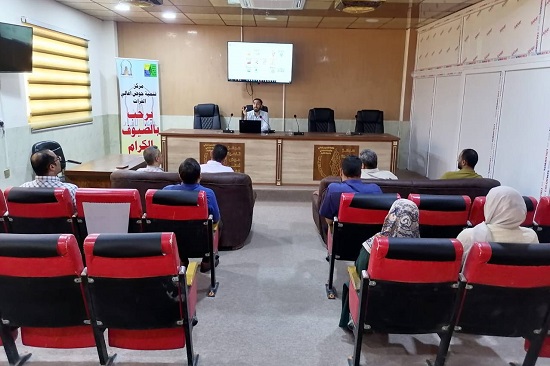|
Sacrifice and its impact on achieving sustainable development goals
2024-06-13

On Thursday 13-6-2024, a panel discussion was held at the Upper Euphrates Basin Developing Centre - University of Anbar on the provisions of sacrifice and its impact on achieving the goals of sustainable development, and the assistant instructor Abdul Kareem Ali Abdullah gave a lecture in which he explained the purpose of the Islamic doctrine on the subject of sacrifice, the most important of which is social solidarity, in order to achieve the first and second goals of the sustainable development goals, which are to eradicate hunger and combat poverty.
The lecture pointed out that the sacrifice is one of the important religious rites, which carries great importance from a humanitarian and social point of view, as God Almighty ordered Muslims to sacrifice and offer it on the days of Eid al-Adha, in order to enhance the spirit of sacrifice and social solidarity, where the poor and needy receive part of it, and the rest is divided between family and relatives.
To combat poverty and hunger stipulated in the Sustainable Development Goals, it is necessary to concerted efforts and diversity of means, so that sacrifice comes to be a partner in achieving these goals, providing fresh meat to the poor and needy who suffer from hardship, and the difficulty of buying meat due to its high prices, especially these days.
Therefore, the sacrifice carries great importance from a humanitarian and social point of view, as it promotes the values of giving and social solidarity in society, and is one of the most important charitable works that Muslims can carry out on the days of Eid al-Adha, and therefore we find many Islamic texts urging us and wanting to offer sacrifices on the days of Eid al-Adha, whether Quranic verses or hadiths of the Prophet.
#university_of_anbar
#Upper_Euphrates_Basin_Developing_Center
  |